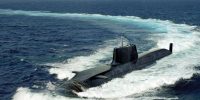Los próximos cinco años de China después del Congreso
Si hay una conclusión inmediata que podemos extraer del discurso que Xi Jinping pronunció en el congreso del Partido Comunista de China el pasado día 16 es que la continuidad y no la innovación radical o audaz son el camino a seguir en la mente de la élite dirigente. El mundo que nos rodea puede estar convulsionado a causa de un cambio preocupante, con divisiones cada vez más profundas en Estados Unidos, una Europa acosada por los continuos problemas energéticos, de inflación y económicos más amplios y una Asia central centrada en la invasión rusa de Ucrania. Para China, el esfuerzo consistirá en atenerse a los compromisos ya decididos, y simplemente tratar de acelerarlos.… Seguir leyendo »









